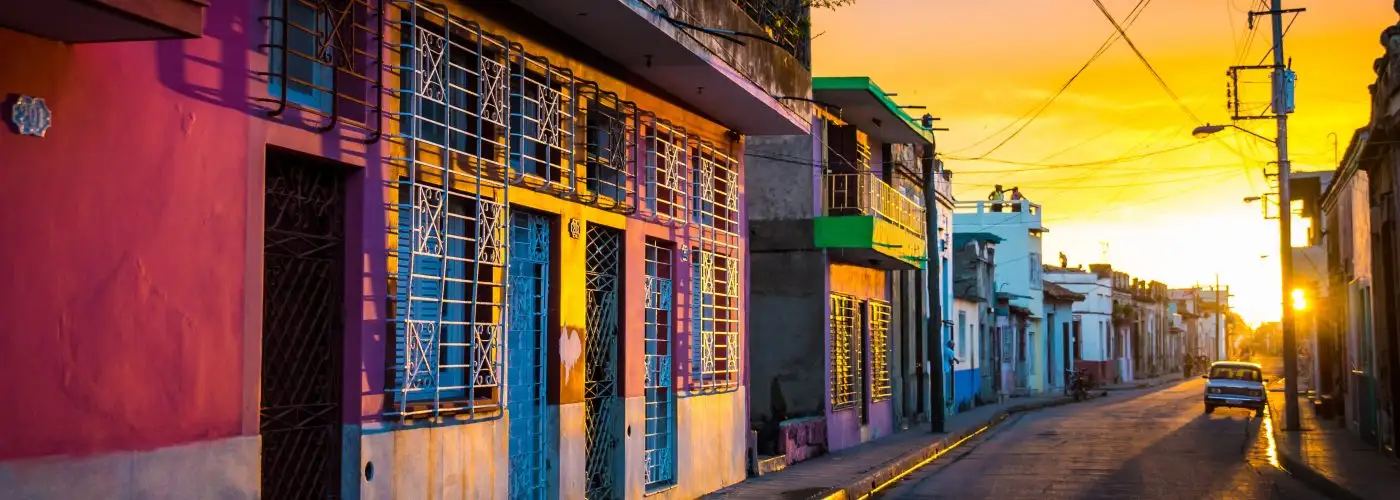As a college student in 2002, I was lucky to be part of a small group of Americans who gained legal passage to Cuba through a little-known educational byway. I couldn’t have timed my visit better, because shortly thereafter the U.S. government implemented a policy change that eliminated the travel exemption for Cuba.
Back then, Fidel Castro himself invited my group to meet him while we were in Havana. He provided the Cuba Libras and we indulged him in a six-hour propaganda soapbox before showing him how much American college kids like to party.
When President Obama announced the easing of travel restrictions in March, more than a decade after my first visit, I immediately started planning another trip—but not without some hesitation. The restrictions that have kept Cuba isolated all these years have also contributed to its extraordinary singularity as a travel destination. My worry this time around? That the increase in American tourism to Cuba would change it as a travel destination.
Cuba, Then and Now
Imagine a place where technology hasn’t advanced much past 1959. Sure, there’s spotty Internet in a few areas, but the government only allows access to state-approved sites. Facebook is allowed, YouTube is not. There are no stock markets, no private banks, and no advertising apart from the occasional “Socialismo o Muerte” (Socialism or Death) billboards. Freedom of speech, freedom of press, and the right to bear arms are very much foreign concepts, too.
But those things aside, the Cuba I visited in 2002 is already disappearing. Broadly speaking, the biggest difference is that everyone seems to have lightened up. Cuba is on the precipice of great change, and you can feel it in the air.
In 2002, I had a difficult time getting anyone to talk to me on the streets of Havana, especially about the government. This time around, I found myself chatting with the locals about Kim Kardashian and Donald Trump, and everyone was excited to hear about America. Even the taxi drivers were willing and able to share their opinions about Cuba and its place in the world.
There’s a lot of mounting hope. But I fear that newfound openness comes at a price.
A Changing Country
I’m excited for the people of Cuba about the positive changes headed their way, but I’m also saddened to know that it won’t be long before we Americans capitalize on the situation. How soon until the whole country gets Starbucked? How long before we infect their happy temperament with our conspicuous consumption? Will we replace their beautiful Spanish colonial architecture with the golden arches?
I hope that some things about Cuba will never change: their love of baseball, salsa dancing, music, and art chief among then. But most of all, I hope that if I return in another decade or two, I’ll find them still greeting Americans with a big smile—and not the kind of resentment that might come along with the Americanization of a fiercely isolated culture.
More from SmarterTravel:
- How to Travel to Cuba Legally from the U.S.
- 16 Things You Think You Know About Cuba That Aren’t Actually True
- Inaugural JetBlue Flight Lands in Cuba
We hand-pick everything we recommend and select items through testing and reviews. Some products are sent to us free of charge with no incentive to offer a favorable review. We offer our unbiased opinions and do not accept compensation to review products. All items are in stock and prices are accurate at the time of publication. If you buy something through our links, we may earn a commission.
Related
Top Fares From
Today's Top Travel Deals
Brought to you by ShermansTravel
Greece: 9-Night Vacation, Incl. Meteora &...
Exoticca
 vacation
$2149+
vacation
$2149+
London to Reykjavik: Luxe, 10-Night Northern...
Regent Seven Seas Cruises
 cruise
$8175+
cruise
$8175+
Ohio: Daily Car Rentals from Cincinnati
85OFF.com
 Car Rental
$19+
Car Rental
$19+




